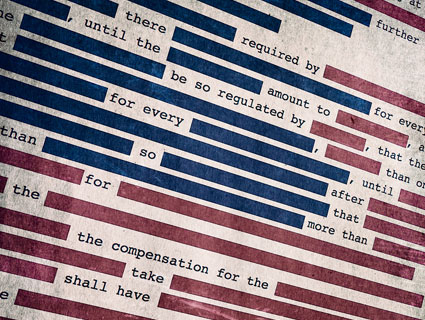
<a href="http://www.flickr.com/photos/truthout/6163866838/">Truthout.org</a>/Flickr
This story first appeared on the ProPublica website.
A proposed rule to the Freedom of Information Act would allow federal agencies to tell people requesting certain law-enforcement or national security documents that records don’t exist—even when they do.
Under current FOIA practice, the government may withhold information and issue what’s known as a Glomar denial that says it can neither confirm nor deny the existence of records.
The new proposal—part of a lengthy rule revision by the Department of Justice—would direct government agencies to “respond to the request as if the excluded records did not exist.”
Open-government groups object.
“We don’t believe the statute allows the government to lie to FOIA requesters,” said Mike German, senior policy counsel for the American Civil Liberties Union, which opposes the provision.
The ACLU, along with Citizens for Responsibility and Ethics in Washington and OpenTheGovernment.org said the move would “dramatically undermine government integrity” by allowing a law designed to provide public access to government to be twisted.
The Glomar denial arose in the mid-1970s when a Los Angeles Times reporter requested information about the CIA’s Glomar Explorer, built to recover a sunken Soviet submarine and the CIA’s attempt to suppress stories about it.
But the advocacy groups propose another response: You have requested “…records which, if they exist, would not be subject to the disclosure requirements of FOIA…”
They prefer such language because a last resort is to sue to obtain the records, something people requesting information might not do if they assumed that no records existed.
Open government groups also contend that the proposed rule could undermine judicial proceedings.
In a recent case brought by the ACLU of Southern California, the FBI denied the existence of documents. But the court later discovered that the documents did exist. In an amended order, U.S. District Judge Cormac Carney wrote that the “Government cannot, under any circumstance, affirmatively mislead the Court.”
DOJ’s draft FOIA rule was first published in March, but DOJ re-opened comment submissions in September at the request of open-government groups. The new comment period ended October 19.
The DOJ did not immediately respond to a request for comment. ProPublica will update as soon as it does.









